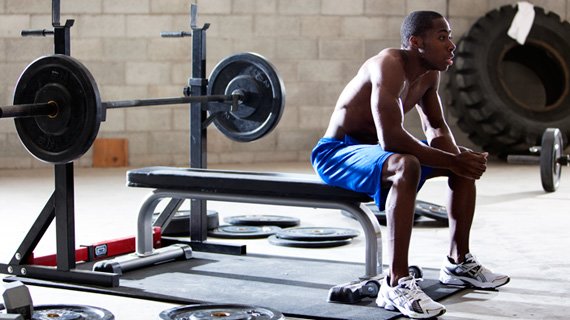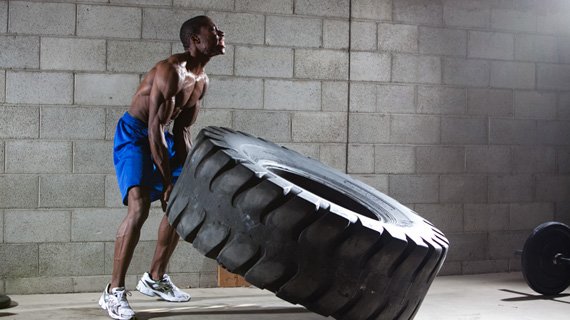I'm doing my best to kill it in the gym, but I'm not getting the results I want and I feel tired and sore all the time. What do you think Obi: Am I overtraining?
You probably are. When I first started working out, I thought training 6-to-7 days per week for 3 hours per day would get me ripped way faster than the dude who trains only 3 times per week. It took me years to figure out that I was overtraining and I wasn't giving my body enough time to recover. You don't build muscles when you're training; you build them when you're resting. So if you don't rest, you can't build.
Sometimes, it's difficult to tell if you're overtraining, but there's a difference between being sore from a tough lifting session and being sore from overtraining. If you are feeling consistent pain in your muscles and joints or have headaches, insomnia, and uninspired gym sessions - you might be overtraining. You need to give your body a break. If you feel really sore, it's not just okay, but necessary to take a day or two off. Resting a day or two does not mean you won't reach your fitness goals: it means you'll probably help yourself achieve them.
More generally, here are some keys to healthy training - as opposed to overtraining:
1
Be Efficient
There is no mathematical equation that makes the length of time you spend in the gym equal to the awesomeness of your physique. My body always recovers best when I train 4 days per week. On this schedule, my body aches less and I can power through my workouts with strength and energy.

2
Sleep Sufficiently
Your muscles grow when you sleep. If you don't get enough sleep, it's almost impossible for muscles to recover and repair at their optimal level. A lack of sleep prevents your body from being fully functional for the next workout. Sleep at least 8 hours each night.
3
Listen To Your Body
If you aren't tuned in, you have a much greater chance of injury. You'll also struggle to lose fat because you won't know when to take down the duration and intensity. Objectively assess your training routine and adjust before injuring yourself.
4
Remember Reaching Goals Take Time
Take it from me. I used to train 6-or-7 days per week for 3 hours per day. Anyone spending that much time in the gym is overtraining (not to mention in serious need of an intervention). And I can promise that training that often for that long will not help you achieve your fat-loss goals any faster. It's a hard pill to swallow. But when you recognize that your goals aren't going to materialize overnight, you'll see that it doesn't matter how much time you spend in the gym. Keep in mind, however, you actually have to go to the gym to build muscle.

Splitsville
My split works great for me, my goals and my lifestyle. Adopt one that works to fit you.
Obi's Training Split
- Monday- Chest/Biceps- 30 minutes of high intensity cardio
- Tuesday- Legs/Triceps/Abs- 30 minutes of high intensity cardio
- Wednesday- Shoulders/Back- 30 minutes of high intensity cardio
- Thursday- Light Chest/Biceps/Abs
- Friday- Off
- Saturday- Off
- Sunday- Off


